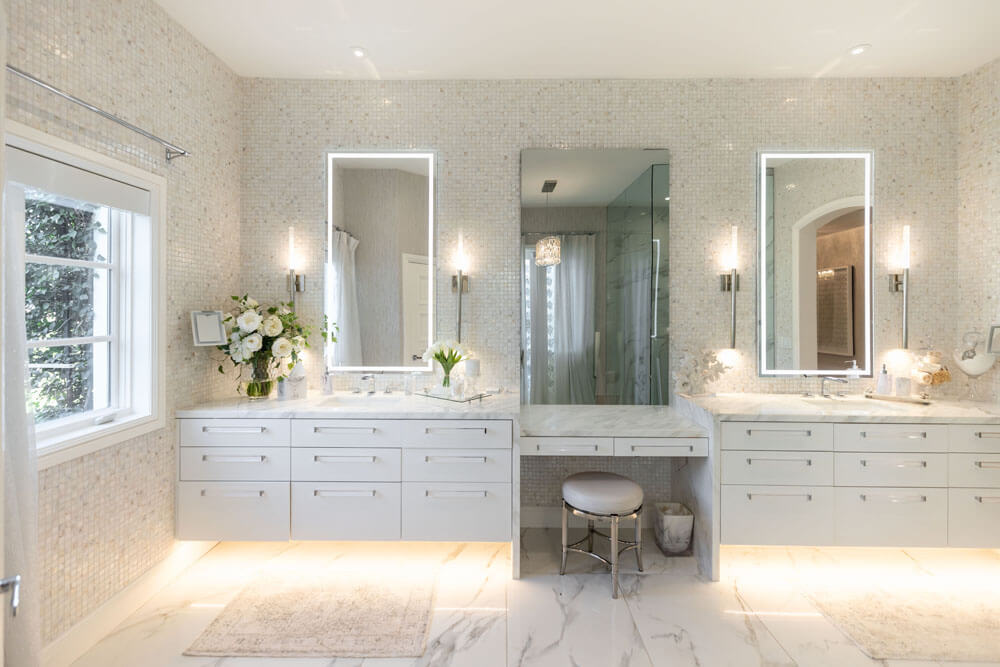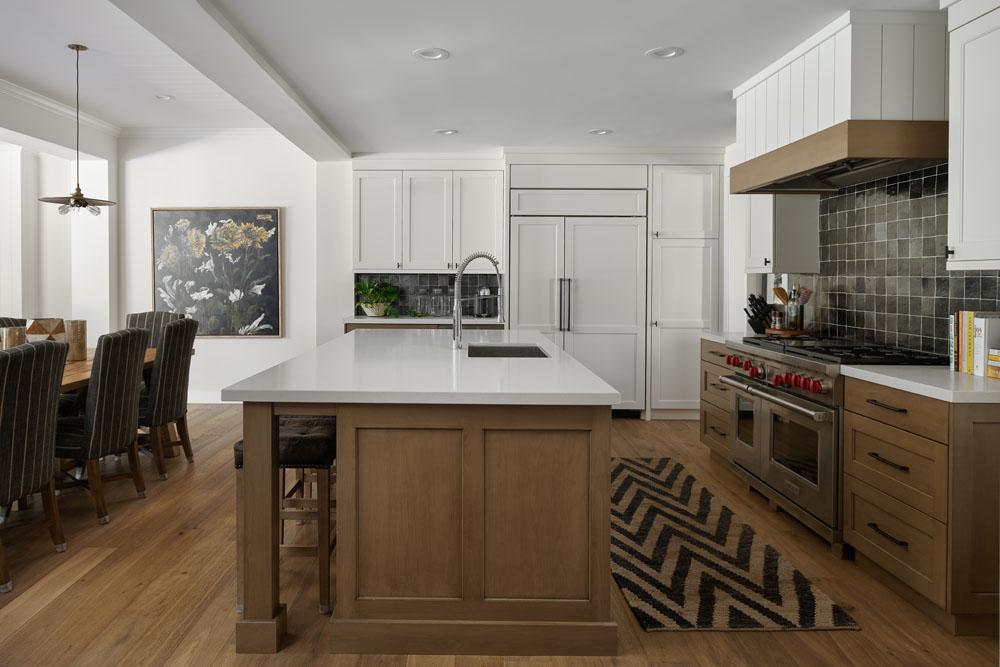Are you walking through your home and starting to feel the walls closing in? Space, once ample, now seems cramped as your family’s needs evolve. You’re not alone in this. Many homeowners face the challenge of outgrowing their homes, struggling to find that perfect balance between space and comfort.
Home renovations, specifically building new additions, are the answer to this common problem. They offer a way to adapt and enhance your living environment without the hassle of moving.
In this article, we get into the essentials you need to know before embarking on this transformative journey. From initial planning to the final touches, we provide insights to ensure your home addition not only meets but exceeds your expectations. Keep reading to discover how to turn your space-crunch woes into a story of successful expansion and rejuvenation.
Clarify Your Vision and Goals
When you’re adding on to your home, it’s crucial to have a clear vision. Think of it like setting out on a road trip. You need to know your destination and the route to take.
This clarity in vision and expectations is key to the success of your home addition project.
First off, consider how the new addition will blend with your existing home. A common mistake is focusing solely on the new space without considering how it integrates with the rest of the house. For example, a modern glass extension might look out of place on a traditional Victorian home.
This mismatch can even affect your home’s market value. A poorly integrated addition could reduce your home’s appeal to future buyers.
Home addition plans should be detailed and well-thought-out. They’re the blueprint of your project which outlines everything from the size of the new space to the type of materials used.
A comprehensive plan helps avoid costly and time-consuming adjustments mid-project. And no one wants a long drawn-out home renovation.
The purpose of the addition also plays a crucial role. Are you looking to create a home office, an extra bedroom, or a sunroom? Each has different requirements in terms of design, lighting, and insulation.
For instance, a home office might need more electrical outlets and soundproofing, whereas a sunroom emphasizes natural light and views.
Ensure Compliance with Legal and Regulatory Standards
When planning a home addition, understanding and complying with legal and regulatory requirements is as crucial as the design itself. It’s like playing a game where you need to know the rules to play effectively. Without proper permits and adherence to regulations, your dream project could turn into a costly nightmare.
Before starting your project, the first step is to obtain the necessary building permits. These permits ensure that your project meets local building codes and safety standards.
For example, in cities like Los Angeles, failing to obtain the right permits can lead to fines that can be twice the cost of the permit itself.
Working with a skilled renovation contractor can make this process smoother. They understand the ins and outs of local regulations and can navigate the permitting process on your behalf. This expertise is invaluable, as regulations can vary significantly from one area to another.
In some regions, even minor changes like window replacements need approval, while in others, you might be able to build substantial additions without a permit.
Another aspect to consider is zoning laws. These laws dictate how you can use your property and can impact your addition plans. For instance, there may be limits on how close you can build to property lines or how high you can build.
Overlooking these laws can lead to legal issues and even require you to modify or remove your addition after construction.
Lastly, it’s essential to comply with environmental regulations. In some areas, there are restrictions to protect natural resources, like water bodies or trees, which can affect your construction plans.
For example, in coastal areas, there might be specific requirements to protect ocean views or marine life.
Plan Your Budget Wisely
Budgeting for a home renovation is like planning a budget for a vacation. You need to know how much you can spend and what you’ll spend it on.
A realistic budget is the foundation of a successful home addition project. It’s about balancing your dreams with your financial realities.
Start by determining how much you can afford to spend. It’s wise to review your finances and consider various funding options, like savings, home equity loans, or refinancing. The key is to have a clear understanding of your financial limits before diving into the project.
When setting your budget, remember to include a contingency fund. Unexpected costs are common in construction projects. For example, you might discover electrical issues that need fixing once you start.
A contingency fund is usually around 10-20% of the project’s total cost and it can help cover these unforeseen expenses.
It’s also important to consider the long-term value of your investment. Cheaper materials might save you money upfront but can cost more in the long run due to maintenance and durability issues. Investing in quality materials and workmanship pays off over time.
Working with reputable home renovation companies can also make a significant difference. These companies usually provide detailed quotes to help you understand where every dollar is going. They can guide you through the budgeting process and ensure you make informed financial decisions.
Lastly, keep in mind that budgeting is an ongoing process. As the project progresses, review and adjust your budget as needed.
Stay in regular communication with your contractor to keep track of expenses and make sure the project stays within your financial boundaries.
Manage Your Project’s Timeline Effectively
Effective timeline and project management are key when renovating your home. It’s like planning a big event. Everything needs to happen in a certain order and on time for the event to be a success.
A well-managed timeline ensures your home addition or upgrade is completed efficiently and to your satisfaction.
The first step is setting a realistic timeline. Home renovations can vary in duration depending on the project’s complexity and scale. For example, a simple room addition might take a few weeks, while a more complex expansion could take several months.
It’s important to have a clear schedule from the start, but also to be flexible. Unexpected delays can happen, like bad weather or back-ordered materials.
Good project management is also crucial. This involves regular check-ins, managing the workforce, and coordinating material deliveries. The key is to keep the project moving forward while maintaining high standards of quality.
Efficient project management can minimize disruptions to your daily life and reduce the overall stress of renovating your home.
Moreover, consider the impact of your project on your daily routine. Home upgrades can sometimes disrupt your regular home life. It’s important to discuss with your team how they will manage the construction process to minimize the impact on your family.
Select the Right Professionals for the Job
When it comes to home additions, selecting the right team is as crucial as choosing the perfect design. It’s like picking players for a championship team. Every member plays a vital role in the project’s success.
The right team of professionals can turn your vision into reality, while the wrong choice can lead to disappointment and unnecessary expenses.
Firstly, look for a team with a diverse skill set. A good construction team should include experienced designers, skilled craftsmen, and knowledgeable engineers. Each of these professionals brings a unique perspective and expertise to the project.
For example:
- Designers focus on aesthetics and functionality
- Engineers ensure structural integrity
- Craftsmen bring the design to life with their hands-on skills
Experience and reputation are also key factors to consider. Research potential teams, read reviews, and look at their past projects. A team with a proven track record is more likely to deliver quality results and handle any challenges that arise during the project.
Communication is another critical aspect. The best teams offer clear, consistent communication throughout the process. They should keep you informed, answer your questions, and make you feel involved in every step of the project.
Good communication helps avoid misunderstandings and ensures that your project is completed according to your expectations.
Finally, consider the team’s approach to project management. Efficient project management leads to smoother, more timely completion of the work.
Look for teams that have streamlined processes in place, as this can greatly reduce the stress and hassle for you as the homeowner.
Craft Your Dream Home With the Right Home Renovations
We’ve journeyed through the critical aspects of planning and executing home renovations. From envisioning your space to seeing it come to life, each step is pivotal in transforming your house into the home of your dreams.
At Woodcrest, we pride ourselves on our unique approach to bringing luxury and functionality together. Our dedicated team ensures that your vision becomes a tangible reality that reflects your personal style and needs.
Ready to take the next step? Contact Woodcrest to begin crafting your bespoke home addition. Let’s make your dream home a reality, together.




